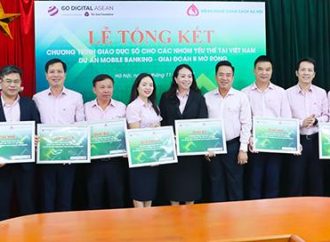Welcome Remarks APRACA FinPower Regional Forum-Consultation On Rural Finance Innovations and Emerging Issues Mr. Man Ho So, Deputy regional Representative, UN-FAO RAP, Bangkok H.E. Pal Buy Bonnang, APRACA Vice Chairman and Assistant governor, National Bank of Cambodia Dr. Ganesh B. Thapa, Regional Economist, Asia and the Pacific Division, IFAD Mr. Won Sik Noh, APRACA Secretary
Welcome Remarks
APRACA FinPower Regional Forum-Consultation On Rural Finance Innovations and Emerging Issues
Mr. Man Ho So, Deputy regional Representative, UN-FAO RAP, Bangkok
H.E. Pal Buy Bonnang, APRACA Vice Chairman and Assistant governor, National Bank of Cambodia
Dr. Ganesh B. Thapa, Regional Economist, Asia and the Pacific Division, IFAD
Mr. Won Sik Noh, APRACA Secretary General
Participants, Ladies and Gentlemen
Good morning.
It is my great pleasure and honor to welcome you on behalf of Bank for Agriculture and Agricultural Cooperatives (BAAC) of Thailand to this highly prestigious and important gathering which brings together international participants under the umbrella of IFAD-supported APRACA FinPower Regional Forum-Consultation on Rural Financial Innovations and Emerging Issues in Bangkok on December 13-16, 2011.
I would also like to express my deepest gratitude to IFAD and APRACA for their trust and acknowledgment on the roles played by BAAC in providing unfailing supports and co-hosting IFAD-APRACA event such as this Forum-Consultation.
IFAD has been APRACA’s foremost and distinguished strategic partner since 1996 under the five-year Microserv program. In 2007 IFAD re-engaged APRACA under the five-year IFAD-supported Regional Program of Accelerating the Financial Empowerment of Poor Rural Communities in Asia and the Pacific, through Rural Finance Innovations, the so called “APRACA FinPower Program”. The program has been proven to be of benefit to rural finance practitioners and helped create a network of learning and exchange of rural finance development among APRACA members and others.
Given the wide network and active participation of APRACA members and finance-related government agencies as well as international development partners and the private sector, this forum will again highlight the rural financial innovations in Asia-Pacific region, showcase the latest rural and agricultural financing models as we advance the frontiers of rural and agricultural financing knowledge.
Ladies and gentlemen,
Rural finance and agriculture have a very close connection in that agriculture is where the supply of food comes from while finance has a role to facilitate the production. In the old context, we as rural finance practitioners have been working hard to achieve two classical conflicting goals. The first one is to go for a maximum outreach in the rural sector and the second one we have to make sure that long-term financial viability of our respective institutions is secured. And we further believe that the achievement would bring a more balanced income distribution to our society. As a result, it would help alleviate rural poverty. This is of course our common and a never changing ultimate goal.
Looking at Thailand, our country commits itself to be a food crop producing country. We have contributed much to world food supply. Take paddy which is one of the major food crops for example, we produce a total of 20 million tons of milled rice yearly. About a half is meant for domestic consumption and the rest goes to the world. Even though natural disaster hampered production like this year, our country still has surplus to supply to the world and would continue to do so in the future. And undoubtedly BAAC has been and will remain a key player in rural finance in Thailand. BAAC is reported to be the most important source of rural financing. It has been known to world financial communities for its exceptional high outreach, self-reliance on fund raising and its financial viability. One of the most admiring structural changes in BAAC is on financial sources. I remember 30 years back when I first joined BAAC, the bank relied on government budget, borrowing from central bank, overseas and the legendary source so called “forced deposits from the commercial banks” under the rural credit policy of the central bank of Thailand. Later, BAAC has gradually built up its own deposit base and become now self-reliant in fund raising. To pursue the mission of rural development, we, BAAC, have successfully amended our charter to allow us to expand our scope of business and target group coverage. Now, we are able to provide financial assistance to support non-farmer clients in the rural areas. However, a credit rationing policy has been imposed on the bank to support non-farmer clients with a limit of 20% of the total loan portfolio. BAAC is now in a process to transform itself from an agricultural banking institution to be a full-fledged rural development bank.
Nowadays, with globalization comes great opportunity and at the same time comes severe danger especially in areas with limited immunities. Aftermath of the 1977 financial crisis I recalled a huge and unrealized loss in BAAC due to currency devaluation. Moreover, an adverse effect of the economic melt-down in that year caused also a sharp increase in non-performing loans in its portfolio. In order to bring BAAC back on track, it took us a lot of efforts including proper financing as well as recapitalization plans. As part of the plans, BAAC has committed itself to a more balanced funding policy focusing on local saving mobilization and it has now adopted a risk management practice based on international accounting standards. It is also investing heavily to revamp its ICT platform. This is to enable a more effective decision supporting system and to be ready for future growth in a more intense competition environment. These developments are unavoidable gesture and indeed have made our task much more difficult and complicated. However, in this connection, I urge all of you to be well prepared for these changes.
At the global perspective, food insecurity becomes a growing concern due to world population growth, natural disaster and oil crisis. Developing countries mostly relying on agriculture are vulnerable to the climate change due mainly to global warming effect. Land degradation due to poor agricultural practices has caused low agricultural productivities. Persistently high oil price has induced more and more land be taken away from food crop in order to give way for bio-fuel production. As a result, poverty still prevails and will become the most significant threat to world food security. This incidence calls upon rural finance practitioners like us to bring agriculture and rural finance back to the top of development agenda. But at this particular moment, not only two classical conflicting goals are pursued but we need to induce our farmer clients to invest loan proceedings in pro-environmental activities and to increase agricultural productivities through applying harmless local wisdoms. Only this new way of doing banking business would make our banks to be “A Bank With Difference”. I recognize the importance of regional cooperation.
So I would like to take this opportunity to propose that future cooperation among APRACA member institutions be fostered concerning issues on poverty reduction, food security and global warming effects with continuous supports from IFAD and FAO.
Ladies and gentlemen,
Last but not least, as rural finance practitioners pursuing the common endeavor of rural development, all of us look for ways in which we can weave a stronger “social safety net” amidst vulnerable and fragile economic environment. Thai people believe that His Majesty the King’s Sufficiency Economy Philosophy would bring to our society a more balanced and sustainable development. In BAAC, the Philosophy helps to introduce the concept of moderation, reasonableness, and resilience to change to our new way of doing banking business. BAAC now goes beyond savings and loans to reach sustainable development. A concept of credit plus technical assistance has been implemented by BAAC to promote value addition activities in rural areas with knowledge insemination. So BAAC is far more than happy to exchange views with all of you about the latest development in Thailand. Do not hesitate to let us know.
Finally, I highly appreciate your participation and contribution to this event. I wish you all a very successful Forum-Consultation, and a very memorable and pleasurable stay in Bangkok and Chonburi where you will have an opportunity to see the rural finance landscape of BAAC.
Thank you very much.






